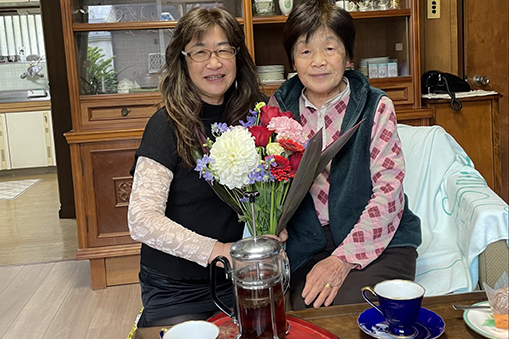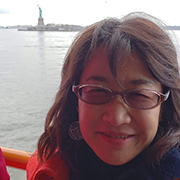
Written by Yumi Naito, Casual Academic and PhD Candidate, College of Nursing and Health Sciences
Advance care planning allows individuals to plan the health care which dignifies their personal values at the terminal phase of their illnesses. The Japanese Government has endorsed the concept of advance care planning in their guideline on end-of-life care and community nurses in Japan can now play an increased role to improve its utilisation by patients.
My current study aimed to identify challenges surrounding advance care planning in the home environment in Japan from the community nurses’ perspectives.
Semi-structured interviews were conducted with eleven community nurses working in metropolitan areas in Japan. Qualitative data was also collected and analyzed using Braun & Clarke’s six-step framework of thematic analysis.
The study identified five themes to describe issues surrounding the current practice of advance care planning in Japan from the community nurses’ perspectives. All the themes identified were interconnected and reflective of the social, cultural, legal, and ethical aspects of life and care in Japan.
Japanese culture was identified to greatly influence family power dynamics in health-care-related decision making, as well as communication between patients, the family, and physicians, including the manner in which informed consent is performed in Japan. This study highlighted the importance of respecting patients’ preferences in care, which should be additionally protected by establishing clear policy and legal frameworks for advance care planning.
Literature review findings identified five main themes: cultural influence, decision making, perspectives on death and dying, lack of information, ambiguous communication, and psychological impact of decision making. The Confucian way of thinking blended Japanese culture of omakase (reliable), amae (depending), and omoiyari (thoughtfulness) and influenced decision making in Japan. Family-centered decision making was more common and both positive and negative aspects of such decision-making process had been discussed.
Autonomy and ethical issues around implementation of advance care planning, as well as its difficulties were raised because of non-full disclosure of diagnosis to patients. Perspectives on death and dying were rather unique features and there was no religious involvement in medical practice settings. Clinical practice rather focused more on cultural perspectives. Spiritual care was emphasised using the word of calm death and ishindenshin (heart to heart communication) where there was complete understanding of each other’s feelings without openly talking. Effective communication was the important key to the interpersonal relationship to achieve optimal treatment and end-of-life decision making.
Finally, psychological stress and dilemmas affected everyone involved with end-of-life decision making, including patients, family, and health professionals. It was the crucial stage where dying was separated from being dead, but rather being referred to the last phase of being alive. Therefore, this research identified the need to investigate the nurses’ role in providing individually focused and quality care which adopts cultural aspects.


